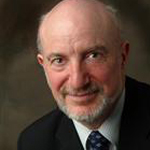Hot topics

Collaboration between patient associations and healthcare professionals is key
The Patient Perspective: Gunnar Karlsson, FH Sverige
read more »
Many key barriers are amenable to change; new strategies are needed
General considerations: David L. Hare, University of Melbourne Australia
read more »
What prevents high risk patients gaining access to treatment with PCSK9 inhibitors?
Roundtable discussion from the Fifth Closed Expert Meeting of PCSK9 Forum focused on identifying barriers to access to treatment with PCSK9 monoclonal antibody therapy, from both the patient and healthcare system perspectives. Access in developing countries is especially problematic, according to insights from South America….
read more »
No effect of PCSK9 inhibitors on new-onset diabetes
Treatment with alirocumab for up to 18 months did not affect the incidence of new-onset diabetes, according to this pooled analysis of Phase III trials from the ODYSSEY programme. These findings are in line with reports with evolocumab which showed no effect on glycaemic measures…
read more »
New debate on lipid screening in children and adolescents
Experts have weighed in following publication of the US Preventive Services Task Force recommendations, which concluded that there was insufficient evidence to assess the balance of benefits and harms of screening for lipid disorders in children and adolescents up to 20 years. To read the…
read more »

News: International Atherosclerosis Society consensus statement on severe familial hypercholesterolaemia
In this new statement, the International Atherosclerosis Society (IAS) has placed phenotype at the heart of management strategies for familial hypercholesterolaemia (FH, inherited high cholesterol). Commenting, lead author Dr. Raul Santos (University of São Paulo Medical School Hospital and Preventive Medicine Centre and Cardiology Program,…
read more »
PCSK9 Inhibitors for Treatment of High Cholesterol levels: Effectiveness and Value
Ciaran Kohli-Lynch, working with Professor Andrew Briggs, University of Glasgow, UK critically appraises the findings and implications of the Institute for Clinical and Economic Review (ICER) report regarding the value of PCSK9 inhibitors in high cardiovascular risk patients. A summary of the report was published as:…
read more »
Lipoprotein-associated PCSK9: Physiological implications?
Professor Sergio Fazio, The Knight Cardiovascular Institute of OHSU, Portland, USA overviews the physiological implications of lipoprotein-associated PCSK9. Studies show that only 40% of total plasma PCSK9 associates with LDL. This raises a key question: Does lipoprotein-bound PCSK9 more accurately reflect PCSK9 activity?
read more »
Legacy effects: Does early intensive LDL lowering treatment modify the atherosclerotic process?
Professor Packard, College of Medical, Veterinary and Life Sciences, University of Glasgow, Glasgow, UK discusses follow-up data from major statin trials and considers the potential mechanism for the legacy effect seen in some trials, such as WOSCOPS. These findings raise a key question: Would phased…
read more »
PCSK9 inhibitors: What is the value of addressing unmet clinical needs in LDL management?
No doubt the PCSK9 monoclonal antibodies are effective in lowering LDL cholesterol across the spectrum of high cardiovascular risk patients. Moreover, data from a recent meta-analysis looking at clinical outcomes with these novel treatments suggested a 50% reduction in all-cause mortality and myocardial infarction (1)….
read more »
Study questions utility of measuring PCSK9 in ACS setting
High PCSK9 levels at angiography were not predictive of 1-year mortality in patients with acute coronary syndrome (ACS), but did predict failure to attain LDL cholesterol goal at 1 year follow-up, independent of lipid-modifying therapy or baseline LDL cholesterol levels. This study measured PCSK9 levels…
read more »
Need to manage lipoprotein(a), blood pressure and renal insufficiency in familial hypercholesterolaemia
This study makes the case for identifying and managing elevated lipoprotein(a), high blood pressure, and renal insufficiency, to reduce the risk of premature coronary artery disease (CAD) in patients with familial hypercholesterolaemia (FH, inherited high cholesterol). Elevated lipoprotein(a) [Lp(a)] is already recognised as causal for…
read more »
Stroke risk in heterozygous FH
Are individuals with heterozygous familial hypercholesterolaemia (FH, inherited high cholesterol) at higher risk of stroke? And if so, does statin treatment ameliorate this risk? Results from this meta-analysis suggest this may be the case. Heterozygous FH is undoubtedly associated with an increased risk of premature…
read more »
ATVB Council statement on nonstatin LDL therapy
This timely statement, led by Professor Robert Hegele, Robarts Research Institute, Western University, London, Ontario, Canada, considers the place of nonstatin therapy, including PCSK9 inhibitors, in the prevention of cardiovascular disease (CVD). Evidence conclusively establishes LDL cholesterol as causal for atherosclerosis and CVD. Statins are…
read more »
A global call to arms for FH
Over 40 experts from around the world have joined forces to for urgent action on familial hypercholesterolaemia. The European Atherosclerosis Society (EAS) FH Studies Collaboration (FHSC), led by Professor Kausik Ray, Imperial College London, UK, aims to address a number of challenges in FH. There…
read more »
Universal screening for FH in children
A report from Slovenia makes the case for universal screening for familial hypercholesterolaemia (FH, inherited high cholesterol) incorporating both family history and genetic data. Total cholesterol (TC) was measured in all children at age 5 years as part of the Slovenia national universal screening for…
read more »
PCSK9 inhibition and glucose homeostasis: new reassurance from human genetics
INSERM, UMR1087-CNRS UMR6291 & Université de Nantes, Faculté de Médecine, l’Institut du Thorax, and Department of Endocrinology, University Hospital of Nantes, Nantes, France The role of PCSK9 in glucose homeostasis is a critical issue, especially for the PCSK9 inhibitors (1), which are likely to be…
read more »
LDL cholesterol lowering, PCSK9 and neurocognitive effects?
The possibility of neurocognitive effects with low-density lipoprotein (LDL) cholesterol lowering has been much debated. A new study (1) raises this issue again, suggesting increased risk of memory loss during the 30 days following the start of treatment, when comparing statin users and nonusers of…
read more »

Making premature CHD history
Dr Samuel Gidding discusses how treating children with FH early can make premature CHD history
read more »

How to identify children with FH
Dr Samuel Gidding discusses how to identify children with FH
read more »








